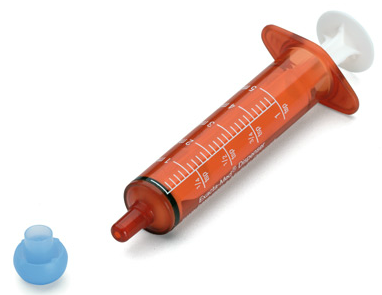 The distribution process in pediatric acute care can be quite a bit different than its adult counterpart. The basics are the same on the surface: 1) receive medication orders, 2) fill medication orders, 3) dispense medications. The big difference however is how those medication orders are filled. Pediatric patients require a lot medications in liquid form pulled into oral syringes with patient specific dosages. The bummer is that a vast majority of these syringes are not manufactured in unit of use syringes. In other words you have to do most of the work yourself. It’s a bit of a hassle, but it has to be done. The process of pulling liquid doses into oral syringes has more in common with work done in the IV room than it does with traditional oral solid distribution.
The distribution process in pediatric acute care can be quite a bit different than its adult counterpart. The basics are the same on the surface: 1) receive medication orders, 2) fill medication orders, 3) dispense medications. The big difference however is how those medication orders are filled. Pediatric patients require a lot medications in liquid form pulled into oral syringes with patient specific dosages. The bummer is that a vast majority of these syringes are not manufactured in unit of use syringes. In other words you have to do most of the work yourself. It’s a bit of a hassle, but it has to be done. The process of pulling liquid doses into oral syringes has more in common with work done in the IV room than it does with traditional oral solid distribution.
Recently I was visited a pediatric hospital and watched this process in action. Based on what I witnessed I started to wonder if it was possible to automate the process. And if you could automate it, would it offer any benefit? I suppose it could increase the safety of the process as well as potentially eliminate the need for a pharmacist, freeing them to do something else. Maybe. Maybe not. Regardless, it was worth more thought.
I started breaking down the process and realizes that it’s more complex than it appears on the surface; it always is. Automating the process would be difficult. Several pieces of the puzzle are already available today, but as completely disparate systems.
Just thinking out loud, or in writing as the case may be, the process would look a little like this:
Read more
